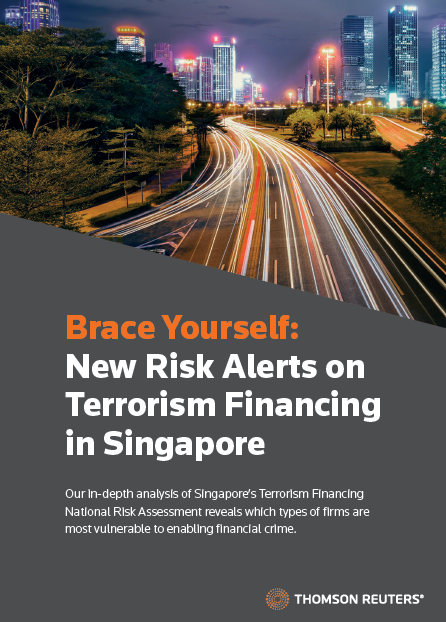Our in-depth analysis of Singapore’s Terrorism Financing National Risk Assessment reveals which types of firms are most vulnerable to enabling financial crime.
Financial institutions in Singapore are at a high risk of being exploited by terrorist financiers, according to a newly published national risk assessment (NRA). The report provides the first major update to the jurisdiction’s January 2014 report on domestic money laundering and terrorism financing threats and vulnerabilities.
National authorities identified that money remittance firms present the highest risk of terrorism financing, followed by banks, which are rated as have a medium-high risk exposure. Officials stated in the report that there is a “medium-low” risk of terrorism financing flowing through:
- domestic non-profit organisations;
- virtual asset service providers;
- precious stones and metal dealers; and
- cash couriers.
The report states that entities in other regulated sectors, including legal and accountancy firms, have a “low” risk of facilitating terrorism financing. The NRA report, which was published on 30 December 2020, is based on guidance from the Financial Action Task Force (FATF) on terrorism financing risk assessments. It also draws on quantitative and qualitative information from national authorities, private sector entities and academic institutions in Singapore.
Our whitepaper provides an in-depth analysis, broken down into areas of compliance risks to consider.



